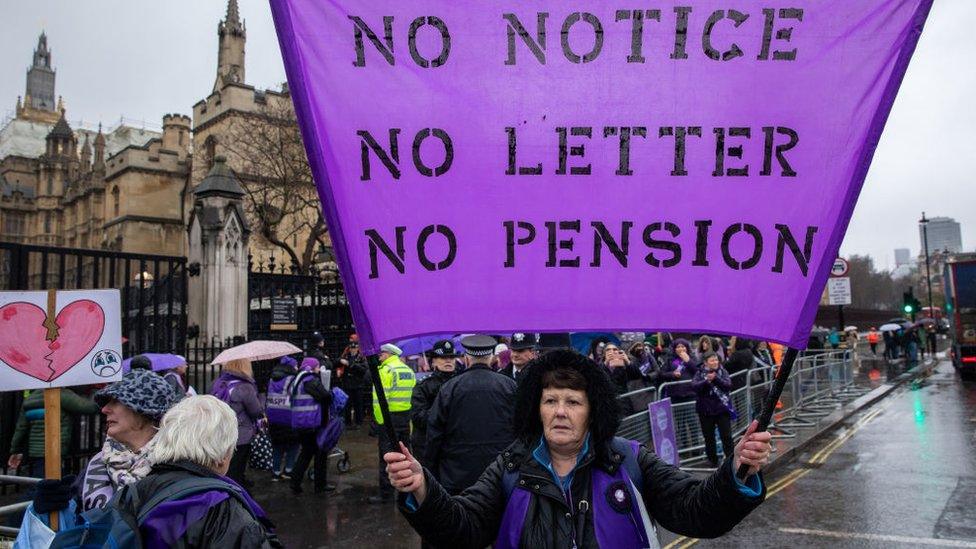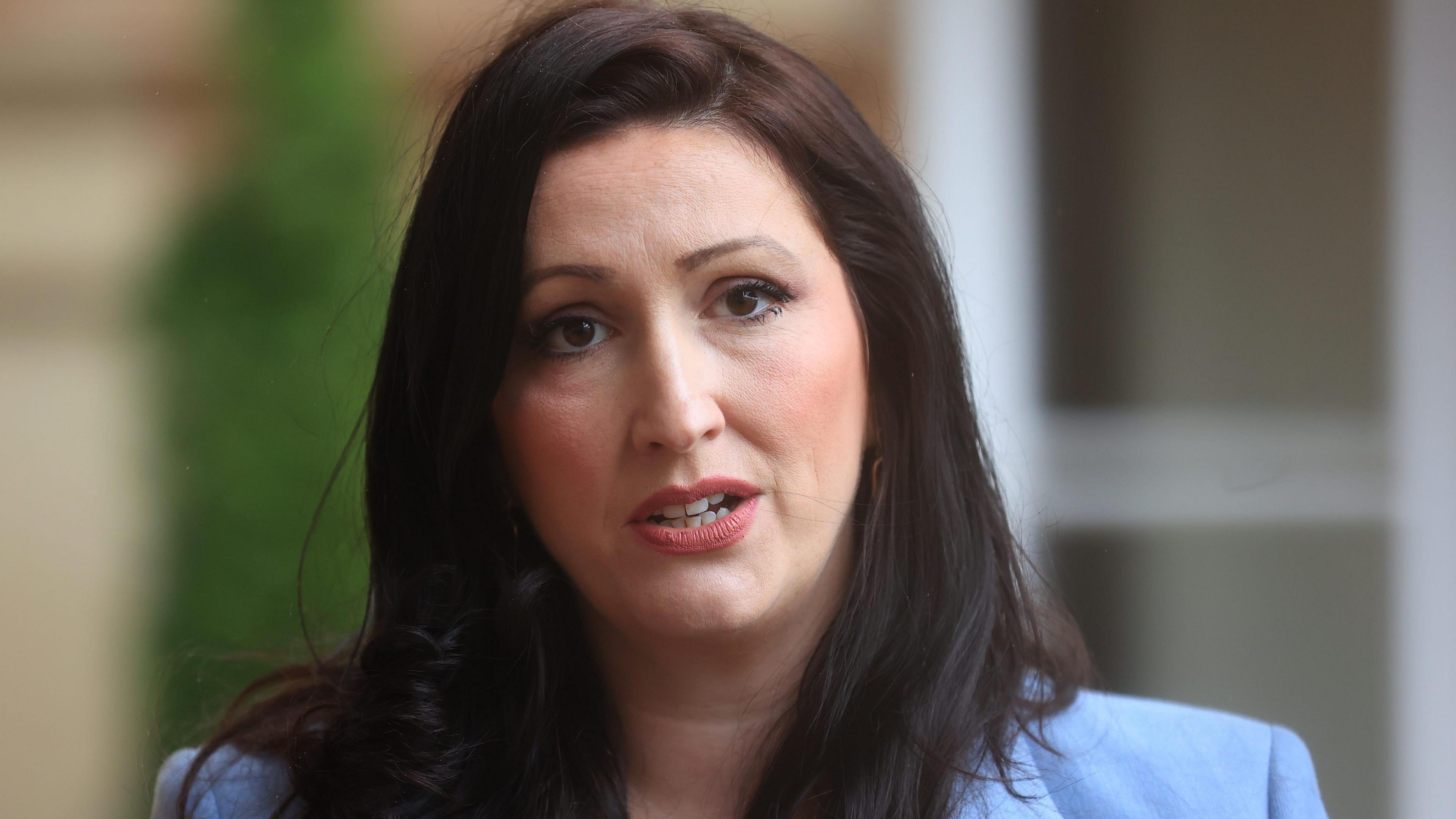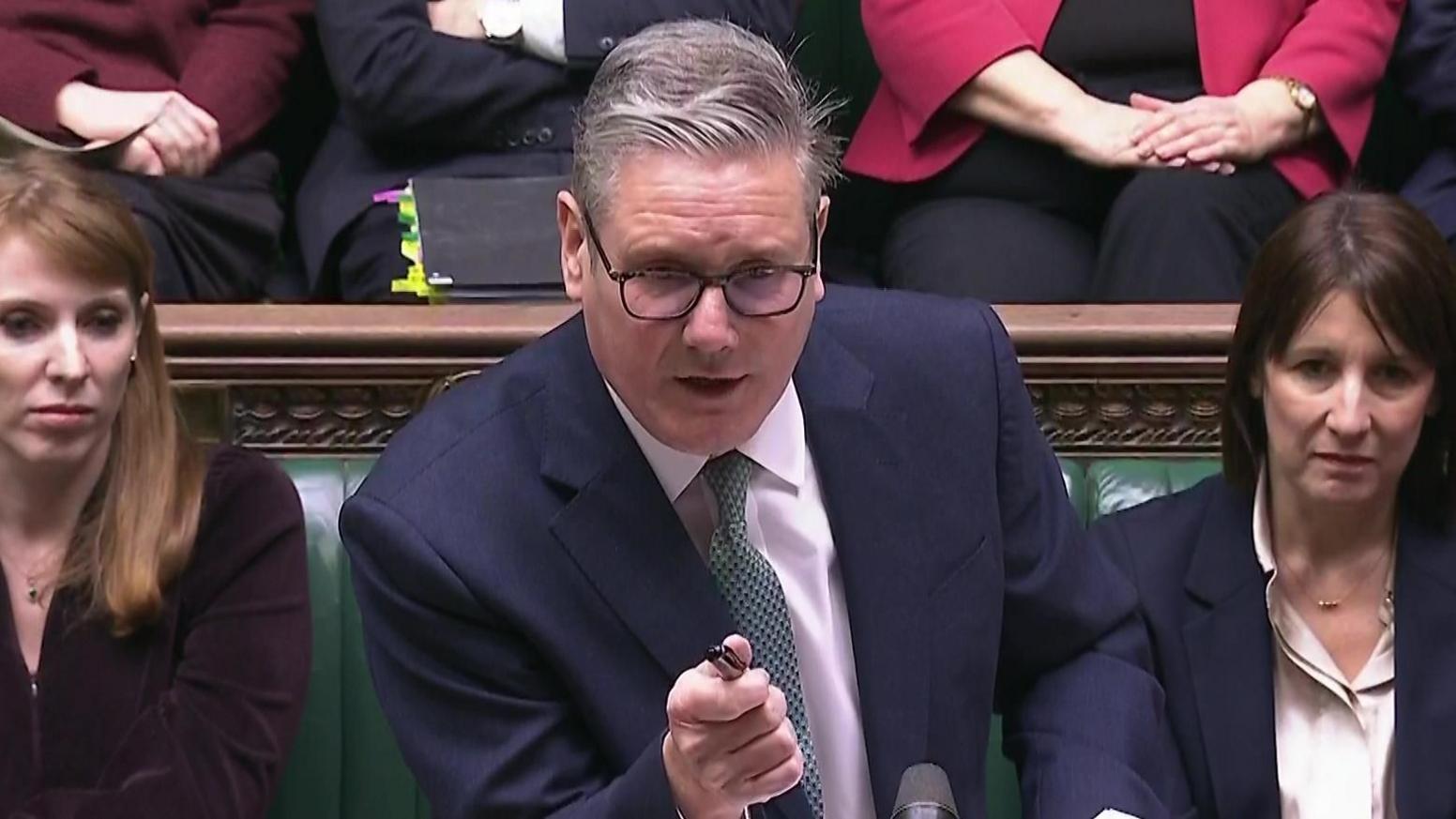'Millions of women have been treated unfairly'

Gwen Dumpleton said she retired early, thinking her state pension would start sooner than it did
- Published
"If this had been the other way round and it was men who were going to be financially hit, I think there would have been a bit more noise."
Dr Jane McLean, from the Herefordshire Women's Equality Group, is one of millions of women born in the 1950s who campaigners say were not properly informed of the rise in state pension age.
The government has apologised for a 28-month delay in sending letters but rejected any kind of financial payouts.
Dr McLean said she knew the pension age was going to change but did not learn until much later that the process would be moved forward.
Work and Pensions Secretary Liz Kendall insisted there was "considerable awareness" of the changes to the pension age and there was no evidence of "direct financial loss".
But Dr McLean told BBC Hereford & Worcester: "I found out I was going to have to wait longer by a friend telling me."
She added she had to work "longer than I might have done" to survive financially.
She said she knows some women who gave up work early to look after elderly relatives, thinking they could live off their occupational pension before their state pension started.

Dr Jane McLean said she was unaware of the change in pension age until a friend told her
Gwen Dumpleton can relate to that.
She is a member of the Herefordshire branch of Women Against State Pension Inequality (Waspi) - the campaign group fighting for compensation for affected women.
"I never got advised of the raise, and I actually gave up work early to go and care in the north of the country for my parents," she said.
She applied for copies of all her correspondence records with the Department for Work and Pensions which she said confirmed she had received no notification of a rise in her state pension age.
Ms Dumpleton said Waspi was hoping to secure a Parliamentary debate on the government's decision not to offer financial compensation.
'Unpaid labour'
In Dr McLean's opinion, the issue should never have been allowed to get this far.
"The women involved are the kind of women who've done unpaid labour looking after elderly parents, looking after small children, doing all sorts of unpaid care that has saved the government millions," she said.
"If all those women had actually been treated fairly, we wouldn't be complaining now."
Responding to the criticism, Prime Minister Sir Keir Starmer said the delays to telling women about pension changes had been "unacceptable".
"I'm afraid to say that taxpayers simply can't afford the tens of billions of pounds in compensation when the evidence shows that 90% of those impacted did know about it, that's because of the state of our economy," he added.
A No 10 spokesman said that since winning the election, the government had "had the chance" to look at the Parliamentary and Health Service Ombudsman's report, which said the women "faced no direct financial loss as a result of the delays".
The government has said compensation could cost up to £10.5bn.
Get in touch
Tell us which stories we should cover in Hereford & Worcester
Follow BBC Hereford & Worcester on BBC Sounds, Facebook, external, X, external and Instagram, external.
Related topics
- Published18 December 2024

- Published18 December 2024

- Published18 December 2024
